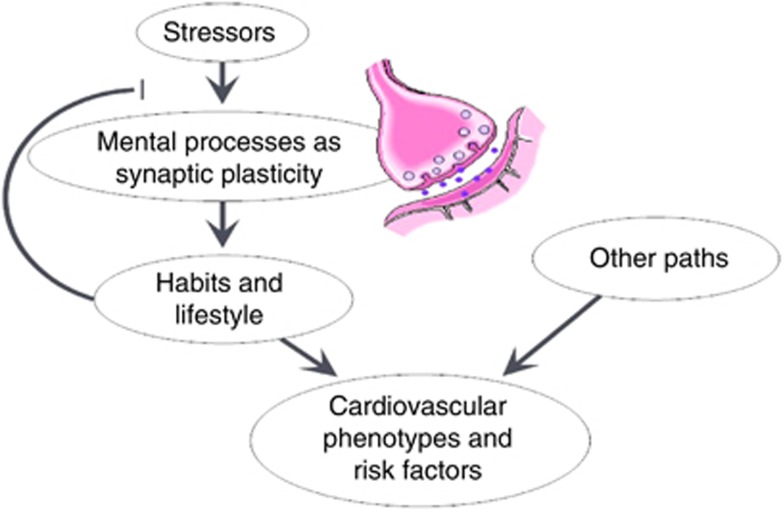Figure 4.
Hypothetical model of the interaction between stress, synaptic plasticity, substance use, obesity and related cardiovascular outcomes. Stressors can change the efficacy of mental processes such as synaptic plasticity. However, other environmental factors, such as substance use, modify the sensitivity of synaptic plasticity to the stressors. In the long term, the combined effects of genetic variations in the synapses and environmental factors shape an individual's lifestyles and habits. Conversely, the established habits and lifestyle influence the body and eventually modify health status outcomes, including cardiovascular disease and cardiovascular risk factors phenotypes as obesity. Nonetheless, there are other factors that modify cardiovascular outcomes through different mechanisms. A full color version of this figure is available at the Hypertension Research journal online.

